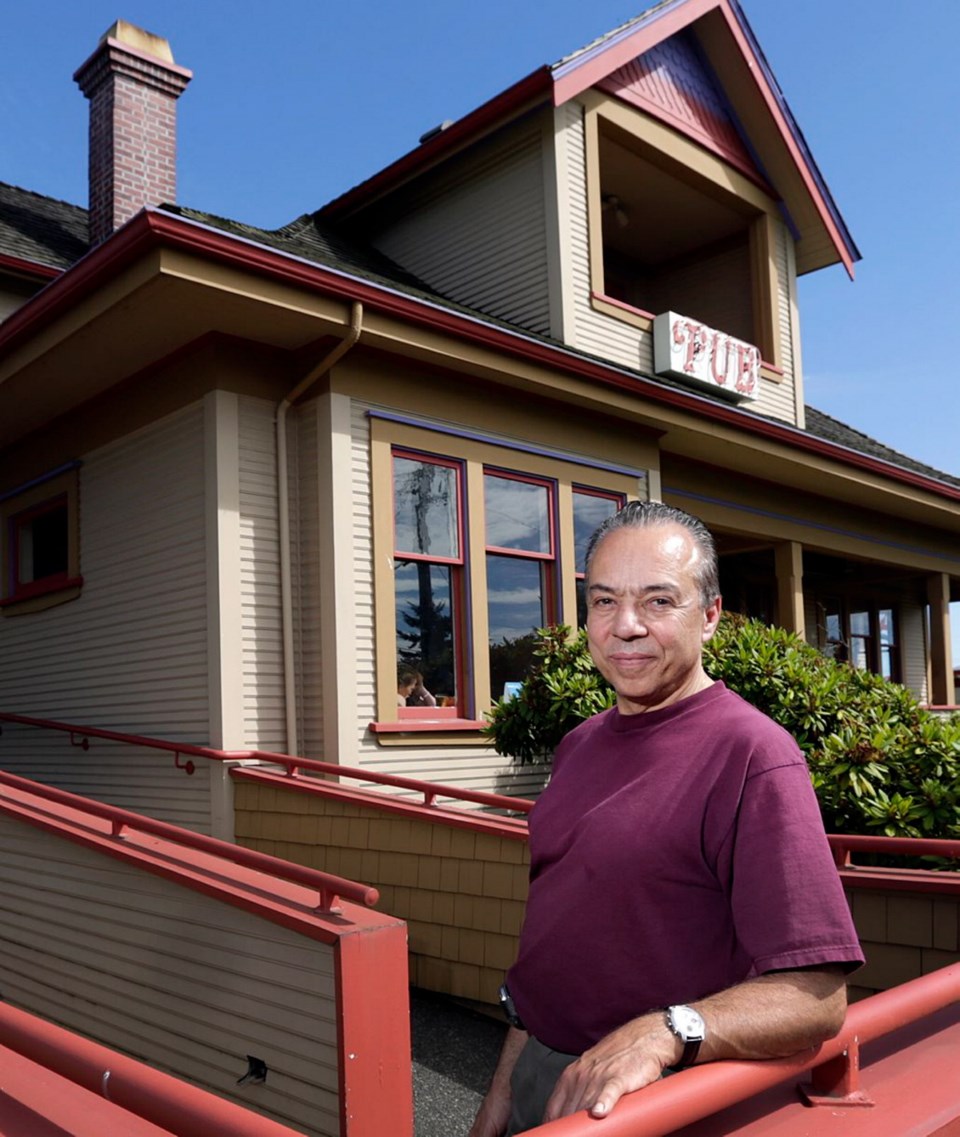Former Bird of Paradise workers are wondering if they will ever get paid, as the pub’s owner says he is financially strapped and owes about 15 staffers a total of $80,000 in back wages.
Three former workers — two Filipinos who arrived here on temporary foreign worker permits and another from the U.S. — say they are owed a total of more than $23,000.
They had hoped for full payment while still working at the 22-year-old Sante Fe-themed pub on Glanford Avenue in Saanich. “We were giving [the owner] a chance,” said Allan Concepcion, who said he is owed $7,084.
Bird of Paradise owner Diego Trozzo said he is trying to keep the business, which remains open, afloat and to pay what’s owed. “It is my biggest desire to get them all paid off.” He said all current workers have been fully paid.
The total is down from $100,000 owed at one point, said Trozzo, who blamed the 2008 recession, B.C.’s harmonized sales tax and stricter enforcement of drinking-and-driving rules for his financial woes. Sales have dropped 57 per cent in the past five years and staff numbers have been pared to seven from 34, he said.
Pubs have suffered more than restaurants because alcohol sales have been so badly hurt, Trozzo said. “We are just trying to survive.”
Starting about six years ago, Trozzo said, he hired Filipino staff under the temporary foreign worker program. About 11 were hired. Some now have permanent resident status. One Filipino is still working at the pub.
At one time, three were living in an adjacent property he used to own and another three at his nephew’s home, Trozzo said.
Trozzo, 57, said he is determined the pub will survive. He is hoping that money-saving measures and new features, such as a free round-trip shuttle service from customers’ homes and a pared-down menu, will increase business and attract financing. He would like to convert 70 of the pub’s 118 seats into a restaurant for all ages, leaving the remainder as a pub for customers 19 and older.
“I’m trying to do things that might get us out of this mess.”
His own home has been remortgaged twice to pay money owed to staff and to Canada Revenue Agency. He said it has been three years since he took a salary and he has been forced to turn to savings and credit cards for money. Hopes of revenue from selling an adjacent property that was facing foreclosure faded this year when he lost $60,000 in the sale. He has taken in a roommate and received a notice that his home electricity may be cut off. His mother remortgaged her house a year ago to help out, he said.
“I covered many, many entire payrolls out of my savings.”
Former staff said sometimes paycheques bounced and they later received cash. Trozzo said staff were often paid in cash.
Starting in late 2011, it became difficult to meet payrolls and at times, staff only received partial wages, he said.
The Bird of Paradise is the subject of five complaints at the Employment Standards Branch, said a government official. Another 24 files have been created by the branch on other workers who may be affected, the official said. Those files are not formal complaints. None of the 29 files has been resolved.
Another four complaints have been closed, he said. Three complaints were resolved with assistance of branch staff, and one complaint was withdrawn.
Details of complaints are not released by the province.
Concepcion, 36, said he filed a complaint in late 2012 and it has yet to be resolved. He now has another job and has applied for permanent-resident status.
He left a job as a cook in Bahrain in the Persian Gulf to work in Victoria in April 2010, and sends money to his wife and two sons, ages 10 and 12, in the Philippines. Money goes toward school fees for the children, he said. Without regular paycheques, “it was very hard.”
At first, he was paid by cheque, but sometimes the cheques would bounce, Concepcion said. Starting in spring 2012, only cash was paid out, at times only half or one-quarter of what was owed — and even that could take weeks, he said.
Filipino Hilbert Canal, 44, a cook, said he quit his job with a cruise line to work at the pub in May 2009, and is now owed $14,053. He said he quit the pub in January and starts another job this month. His 18-year-old son has joined him in Victoria.
“It’s so hard, especially when you have bills coming in,” said Canal, who was forced to borrow money from his girlfriend.
He said he did not complain to employment standards about the situation because he feared it might adversely affect his application to become a permanent resident, which was approved in February.
Jacqueline Kim Perez, 20, said she made a complaint to employment standards late last year that has not been resolved. She said she is owed $2,028.
Kim Perez said she started working as a server in July 2012. “He would pay me partially and told me he still owed me more and that he would pay me later.”
Kim Perez quit in December and now has another job.



